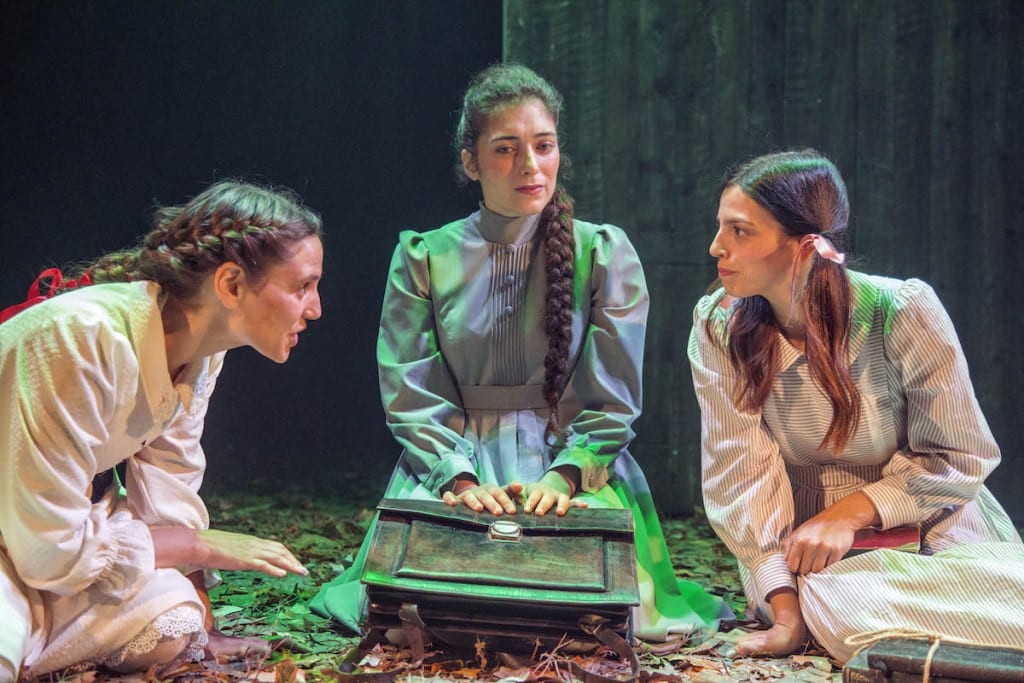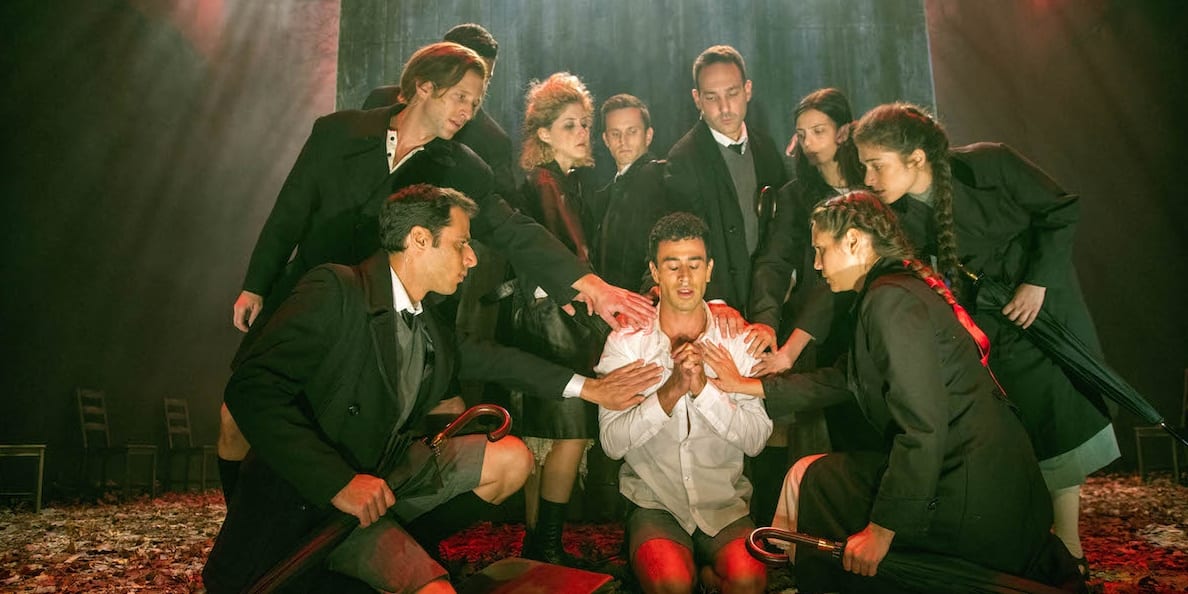Frank Wedekind’s bitter play about the sexual awakening of 14 years old kids in puritanical Germany was written in 1891 and left an indelible mark on modern theatre. In 2006 it was adapted into a multi-award-winning off and on Broadway musical which was later performed on the Israeli stage. The new production of the play at Habima Theatre takes a different path. While not a musical, it contains a few new songs, written by Noam Horev (lyrics) and Ohad Hitman (music). These beautiful songs are the highlights of the production and the only moments in which it truly comes alive.
The play introduces us to a bunch of sexually aroused yet clueless teens, whose strict parents and teachers, portrayed as inhuman robots, make sure they don’t find out anything about how babies are born, as sex is considered sinful. Only one smart student knows about sexual reproduction and that would get him into trouble. Rape, teen pregnancy, botched abortion, homosexuality, promiscuity, suicide, brutal violence – the play throws everything at these tortured kids and topples them one by one. The only hope for redemption is offered by a mysterious masked man who appears in the last act, which takes place at a cemetery, and offers the truth about life. It is a strange ending that seems out of place in our day and age.

While teens today still deal with all the above, parents are usually not that strict, at least not in the western part of the world. Therefore, director Moshe Kepten’s choice to locate the play in a timeless setting creates a jarring note. The stage is covered with leaves and surrounded by images of trees to suggest a wood. A large lit cube in the center stands for all the different locations – school, homes of the families and a reformatory.
Probably inspired by the German expressionist theatre (of which Wedekind is considered a precursor), all the adult characters – teachers and parents – are played with pronounced artificiality. By contrast, those playing the teens are more lifelike, although some of them seem too old for the part. The difference in acting styles is probably meant to illustrate the chasm between the two generations, but the result is dissatisfying. As the play limps along, it never jells into an emotional experience.
The few songs are beautifully sung by the cast that includes some graduates of TV reality shows. Kobi Marimi who represented Israel in the latest Eurovision song contest gets to sing a powerful ballad as Ernst, but his signature beard is jarring – he is supposed to be playing a 14 years old insecure boy. Roni Dalumi, who has become a major star since winning A Star is Born (an Israeli version of Pop Idol) 10 years ago, also gives her all in the small part (with a big song) of Ilse who ran away from home and found herself sexually abused by adult painters. But the only actress who truly manages to connect with the joy and anguish of her youthful character is Amit Farkash in the role of Wendla, who is attracted to Melchior, then raped by him and betrayed by her mother.
Teens in Israel could use a play that deals with what they are going through at this digital age – this is not the one, and not only because it is restricted (no one 16 and under admitted).
דרמה מרגשת העוקבת אחר סיפורה של חבורת צעירים, תלמידי בית ספר המתוודעים לראשונה למיניותם , כשהמפגש היומיומי עם הממסד ועם הוריהם מוביל לנקודות חיכוך מורכבות
במרכז המחזה שלושה נערים: מלכיור, מוריץ וונדלה היפה
מוריץ מתקשה בלימודיו וסובל מהתעמרות המורים בבית הספר ומאביו הנוקשה, וונדלה מנסה למצוא מענה לשאלות המתעוררות בה סביב אהב מיניות והיריון, ומלכיור – שמתקשה להתמודד עם כך שהשאלות שהוא שואל אינו נענות ושסביבתו היא עולם של עובדות בלתי מעורערות
המחזה מתמקד במסע המורכב והטעון ביותר שהאדם נדרש אליו בחייו – המעבר מילדות לבגרות
משך זמן ההצגה: שעתיים וחצי כולל הפסקה

